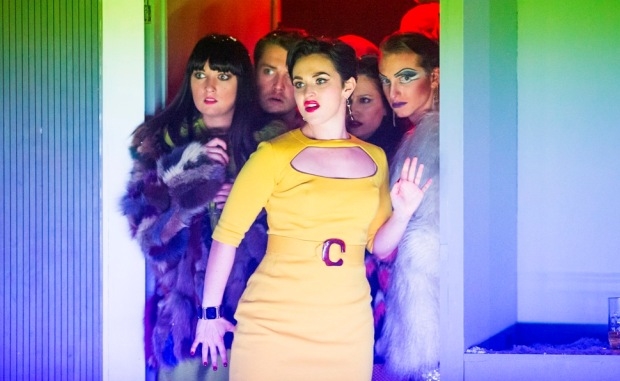La bohème (London Coliseum)
English National Opera disappoints with its new production of Puccini’s romance

© Tristram Kenton
You can tell if a director's had a 'wouldn't it be cool' moment. It's when a production has one big idea, not necessarily a good one, and the rest of the opera has to be packaged around it. Take this new La bohème: Benedict Andrews, the distinguished director of the Young Vic's A Streetcar Named Desire as well as a couple of decent earlier operas for ENO, had a lightbulb moment at the planning stage, and it's a stinker.
It'll have run something like this. "Wouldn't it be cool if Rodolfo and Mimì fell in love while sharing armfuls of heroin. Makes sense: it rationalises the suddenness of their amour fou, it explains why Rodolfo feels responsible for Mimì's death, and they're two young people and risky experimenting is what young people do."
It also removes any shred of romance from the lovers' first encounter, it demands to be followed through in some way (it isn't), it destroys the impact of the best-loved scena in all opera, and once the junk kicks in both Rodolfo and Mimì are required to lie flat on the floor while they float their notes.
Jonathan Larson's musical Rent neutralised any further need to make La bohème hip and relevant, and that was 20 years ago. Andrews's new staging of the Puccini original, though set today, is way more creaky in its desperation to be youthful. The four students appear to be squatting in a disused schoolroom (no electricity, but door keys and a landlord); Marcello is so bohemian he goes to the café in his pyjamas.
'A bad trip'
Much of the stagecraft is bungled too, and it's hard to work out precisely what the concept is intending to achieve. Mimì's makeshift deathbed is set so high it looks like an operating table, and if you didn't know that Colline is addressing his coat in his aria you wouldn't guess it. There is little discernible sense of place in Johannes Schütz's solid white designs, nor of time (it's Christmas, but you'd never know from the children's masks and balloons) and Andrews's focus on the young men makes Mimì seems like a guest at her own opera. We aren't encouraged to care about any of them.
Happily for ENO, Corinne Winters is an assured heroine who produces a pure, limpid tone even when her upper frame is contorted. Her vocal colour, darker than we often hear in the role, is a delight and her selfless professionalism helped allay the first-night problems experienced by her Rodolfo Zach Borichevsky, whose voice was underpowered and raw on money notes. A booming Duncan Rock as Marcello tended to steamroller him in their duo scenes.
Nicholas Masters (Colline) and Ashley Riches (Schaunard) are both admirable, if interchangeable with their hipster beards, but vocally each of them would better suit the other's role. As for Rhian Lois, on top form throughout and a stage-filling, scene-stealing ball of energy, her Musetta is pitch perfect and helps bring clarity to the muddled through-line of Puccini's second act. A word too for Simon Butteriss, superbly Andrew-Shore-ish as the landlord Benoit and, insofar as Andrews allows, as Alcindoro.
Xian Zhang conducts a primary-coloured account of the score and gives the ENO Orchestra free rein to belt the loud bits. It isn't revelatory. She earns a black mark, too, for holding the show until the audience applauds Rodolfo's "Che gelida manina" – something, alas, that few were keen to do.
All in all a bad trip. Wouldn't it be cool if ENO's next Bohème trusted Puccini?













